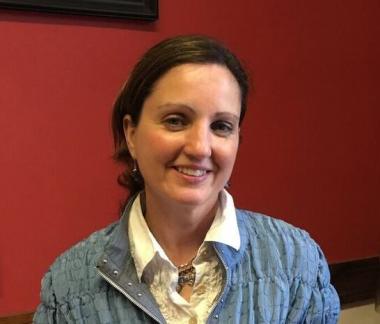
Especially working at Abby’s House. We have a shelter for homeless women, with or without children and then we have SRO’s [Single Room Occupancies]–58 for women and then 17 bedroom apartments for women with children. We do have a lot of women that come in broken, they come in domestic violence, mental health or anything like that there and there’s a lot of great resources for women here. This is a place where they feel safe. They feel comfortable. Just getting people to believe in them, and with that support we have a lot of women who are back at school. A lot of people are doing volunteering, a lot of people doing self-help groups and stuff like that there. I have to say, the community’s very good as well. We have the education part too, and we’re in partnership with a lot of different agencies to help women grow and feel good about themselves. We have a lot of women volunteers who have been very successful in business, encouraging these women and also giving them the skills they need for the outside world. We have a lady that comes in and does computers with the women. Another one that does resumes; we have a woman that does financial planning with them. All these skills, that before these women never had, give them more confidence in themselves.
Katrina McNamara, a housing advocate at Abby’s House in Worcester, was born in Derry, Northern Ireland, in 1967. She moved to the United States by herself to work for an international nanny service. She eventually accepted an invitation from her neighbor to work at Abby’s House. Throughout the interview Katrina discusses the struggles she faced growing up in Derry, as well as how the ethno-nationalist conflict known as “The Troubles” affected her. She also discusses her transition into life in Worcester. Katrina speaks of the benefits and challenges involved with her job. She considers the ability to help women in need an uplifting benefit to her job. On the other hand, some women have to be turned away because the organization lacks space and resources for the large number of applicants and sometimes the applicant does not meet the Abby’s House guidelines. McNamara laments that this is a difficult reality of the job of a housing advocate. Katrina credits the strong women who surround her as a source of support and inspiration despite some of the emotional tolls of the job.
